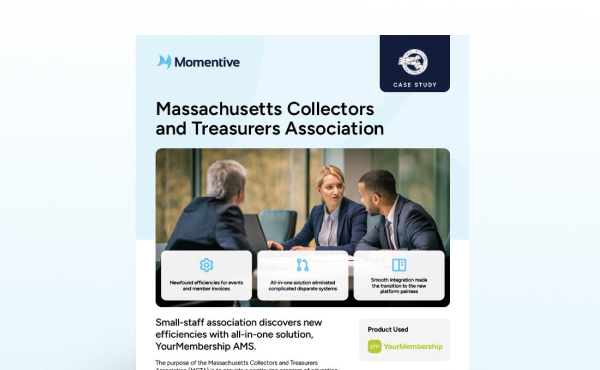Your association’s code of ethics might be more important than you think.
Your members turn to your association for multiple reasons. From training and certifications to job opportunities and career development to industry news and networking – the list goes on. But association industry research shows that one top member benefit stands out: the code of ethics, or conduct.
Let’s look at some details about codes of ethics, or conduct, including why they’re important for recruiting and retaining association members, how to keep them updated, and how to promote them to your members.
What is the purpose of a code of ethics?
For a professional or trade association, a code of ethics establishes ethical standards for members of the organization and its industry or profession. It’s also sometimes called a code of conduct. It sets forth core values and ethical principles and is designed to help promote and encourage a certain level of professional conduct.
Here are some key aspects of the purpose of an association’s code of ethics:
- Provides a common set of rules or standards for all in the profession to adhere to
- Defines best practices for the profession
- Provides a basis to meet compliance requirements for the profession
- Establishes a legal standard for the profession
- Provides a “seal of approval” that those outside the profession can look for when using or selecting services from the profession
- Helps to serve as a watchdog for the profession
A code of ethics might include guidelines for everything from conflicts of interest and work attendance to harassment and other work environment issues.
Here are four examples of established codes of ethics for associations:
- Code of Ethics for Nurses from the American Nurses Association
- National Society of Professional Engineers Code of Ethics for Engineers
- Code of Ethics of the National Association of Social Workers
- Code of Ethics for Educators from the National Education Association
Why is a code of ethics important for associations?
A code of ethics is important to associations because it’s important to members. Momentive Software has conducted association trends research for many years, and each year, code of ethics is among the most important member benefits.
In the 2023 Association Trends Study, it ranked as the most important benefit to members – with its importance up significantly since the 2022 study. In several past studies, it ranked as the first or second most important driver of membership renewal.
These findings make it clear that your association’s code of ethics is a key factor in your organization’s ability to recruit and retain members.
Why it might be time to review your association’s code of ethics
Given how important a code of ethics is to members, it’s important to ensure your association’s code of ethics is up to date. Just think: When was the last time you looked at your organization’s code of ethics? If your association is like many others, it was written when your bylaws were drafted.
Your code of ethics describes what brings your members together as a profession. It’s also the foundation of their shared expectations of each other. Members are proud to belong to an association that provides a framework and a standard for their industry. That’s why keeping your code of ethics updated and relevant is a must-do for attracting and retaining members.
4 tips for updating your code of ethics
Even when your association has a small staff, it’s still important to regularly review and update your code of ethics.
Here are some helpful tips for evaluating and updating your association’s code of ethics:
- Create a code of ethics committee or task force. It should include experts on codes of ethics and current ethical issues related to your profession, public policy, and law.
- Include reviewing and updating your code of ethics as part of your annual planning process. Be sure not to rush it with a “just get it done” approach. Instead, allow plenty of time for the review.
- Assess your association’s communications regarding your code of ethics. For example, take a walk in your prospects’ and members’ shoes by verifying that your code of ethics is easy to find on your website. Also, review your new member welcome email and renewal emails and make sure they include messages about your association’s code of ethics. Plus, make sure you have a plan to promote your association’s code of ethics in other ways throughout the year, such as in your member newsletter, in your online member community, and at member events.
- If you haven’t already done so, establish a way for members to file reports about possible violations of your organization’s code of ethics. Publishing violation procedures is a good way to reinforce the validity of the ethics code.
6 ways to promote your association’s code of ethics
Because it’s such a valuable benefit to members, your code of ethics can be a powerful tool for member recruitment and retention. That’s why it’s important to have a plan to promote your code of ethics throughout the year.
- Promote it in your recruiting efforts. Include value statements about your association’s code of ethics in your member recruitment communications and materials. Focus on the reasons listed previously for why a code of ethics matters.
- Let new members know about it. Highlight your association’s code of ethics in your member onboarding process to make sure new members are aware of it right off the bat.
- Make it easy to find. Make sure the code of ethics is easy for members and prospective members to find on your website and in your online member community.
- Remind members about it. Include a section in your member newsletter that reminds members of the importance of the code of ethics and where to find it.
- Promote violation procedures. Periodically remind members of the process for reporting and resolving potential code of ethics violations.
- Keep it current. Review and update the code of ethics each year as part of your annual planning process. Ask your code of ethics committee to get input from some of your members as part of the process. Then, get the word out to members (via your member newsletter, online member community, member events, and other communications) that it has been updated. Be sure to:
-
- Restate the significance of the code of ethics.
- Call out what has changed and why the changes have been made.
- Remind members how to access it.
- Remind members of the process for reporting and handling potential violations.
Your association’s code of ethics can be a powerful tool for member recruitment and retention. Be sure to keep it updated, and make sure people know about this valuable member benefit.






